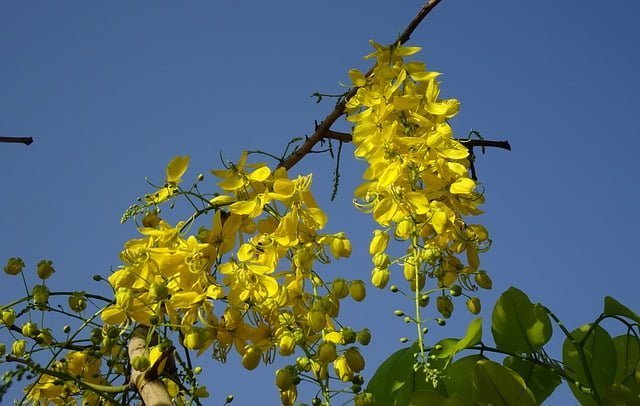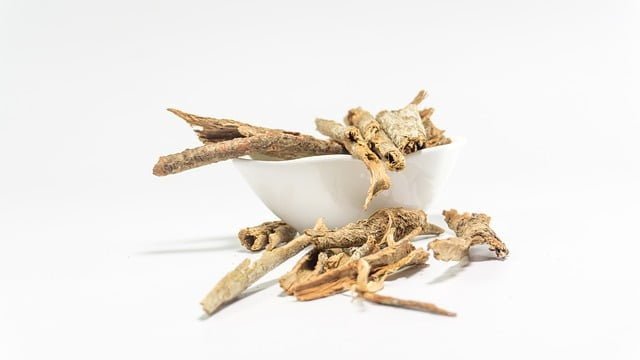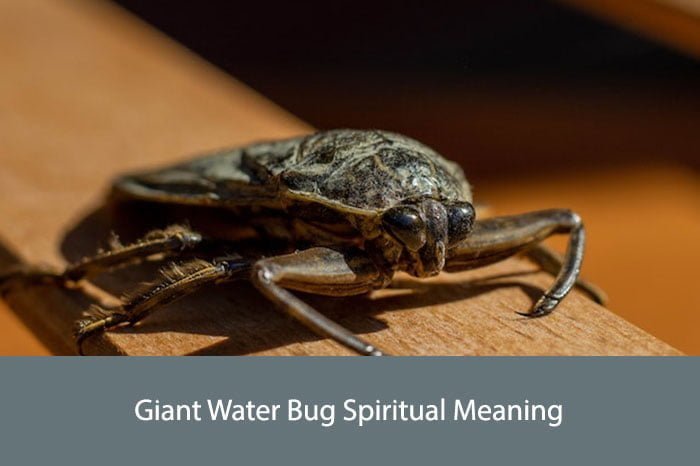Cassia is a plant that has been used for centuries for its medicinal properties and as a spice in cooking. However, it also has a rich spiritual meaning that has been recognized in various cultures around the world. In this article, we will explore the spiritual significance of cassia and its role in different traditions.
In many ancient cultures, cassia was believed to have healing properties for the body and soul. It was used in religious ceremonies and rituals to purify the mind and spirit, and to ward off negative energy. Its sweet and warm aroma was thought to promote feelings of peace, love, and happiness, and to enhance spiritual awareness and intuition.
Today, cassia is still used in spiritual practices such as meditation and aromatherapy. Its grounding and calming effects are said to help balance the chakras and promote emotional healing. It is also used in various forms of divination, such as tarot readings and crystal healing, to enhance intuition and psychic abilities. Whether you are a spiritual seeker or simply curious about the meaning of cassia, this article will provide valuable insights into its significance and uses.

Origins of Cassia in Spiritual Practices
Cassia has been used in spiritual practices for centuries, dating back to ancient times. The bark of the cassia tree was used in traditional Chinese medicine to treat a variety of ailments, including digestive issues and skin problems. In addition to its medicinal properties, cassia has also been used in spiritual practices for its symbolic and spiritual significance.
In many cultures, cassia is associated with abundance, prosperity, and success. The sweet and spicy scent of cassia is believed to attract positive energy and good fortune, making it a popular ingredient in incense blends and essential oil blends used for spiritual purposes.
In ancient Egypt, cassia was used in embalming rituals and was believed to have protective properties. The oil was also used in perfumes and cosmetics, and was associated with the goddess Isis.
In the Bible, cassia is mentioned as one of the ingredients in the holy anointing oil used to consecrate priests and kings. It is also mentioned in the Song of Solomon as a symbol of the beauty and sweetness of the beloved.
Today, cassia continues to be used in spiritual practices around the world. Its rich history and symbolic significance make it a powerful tool for those seeking spiritual growth and connection.
Symbolism and Spiritual Significance of Cassia
Cassia is a tree native to China and Southeast Asia, and it has been used in traditional medicine and spiritual practices for centuries. In this section, we will explore the symbolism and spiritual significance of cassia.
Symbolism
Cassia is often associated with prosperity, abundance, and wealth. In Chinese culture, cassia is a symbol of good fortune and is often used in celebrations and ceremonies. The tree’s golden flowers and leaves are also associated with the sun and the element of fire, which represent vitality, energy, and passion.
Spiritual Significance
Cassia has been used in spiritual practices for its healing properties and its ability to connect us with the divine. In traditional Chinese medicine, cassia is believed to have a warming and stimulating effect on the body, and it is often used to treat conditions such as colds, flu, and digestive issues.
In spiritual practices, cassia is believed to help us connect with our inner wisdom and intuition. It is also said to help us attract abundance and prosperity into our lives. Cassia essential oil is often used in aromatherapy to promote feelings of joy, happiness, and positivity.
Conclusion
Cassia is a powerful plant with deep spiritual significance. Its symbolism and healing properties have been recognized for centuries, and it continues to be used in traditional medicine and spiritual practices today.
Cassia in Biblical Context
Cassia in the Old Testament
In the Old Testament of the Bible, cassia is mentioned several times as one of the ingredients in the holy anointing oil used to consecrate priests and the tabernacle. It is first mentioned in Exodus 30:22-25, where God commands Moses to take “the finest spices: of liquid myrrh five hundred shekels, and of sweet-smelling cinnamon half as much, that is, two hundred and fifty, and of aromatic cane two hundred and fifty, and of cassia five hundred, according to the shekel of the sanctuary, and of olive oil a hin.”
Cassia is also mentioned in Psalm 45:8, where it is described as one of the fragrances that make up the garments of the king. The psalmist writes, “All your robes are fragrant with myrrh and aloes and cassia; from ivory palaces stringed instruments make you glad.”
Cassia in the New Testament
In the New Testament, cassia is not mentioned specifically, but it is believed to be one of the spices brought by the wise men as gifts to the baby Jesus. In Matthew 2:11, it says, “And going into the house, they saw the child with Mary his mother, and they fell down and worshiped him. Then, opening their treasures, they offered him gifts, gold and frankincense and myrrh.”
Cassia is also mentioned in Revelation 18:13, where it is listed as one of the luxury items that will no longer be available after the fall of Babylon. The verse reads, “cinnamon, spice, incense, myrrh, frankincense, wine, oil, fine flour, wheat, cattle and sheep, horses and chariots, and slaves, that is, human souls.”
In conclusion, cassia has a significant place in the Bible, particularly in the Old Testament, where it is used as one of the ingredients in the holy anointing oil. While it is not mentioned as frequently in the New Testament, it is believed to have been one of the gifts brought by the wise men and is listed as a luxury item that will no longer be available after the fall of Babylon in Revelation.

Cassia in Eastern Spirituality
In Eastern spirituality, cassia is a revered herb that has been used for centuries in various forms of traditional medicine, including Ayurveda and Traditional Chinese Medicine. It is believed to have powerful healing properties and is often used in spiritual practices to promote emotional and physical well-being.
Cassia is associated with the sacral chakra, which is located in the lower abdomen and is associated with creativity, sexuality, and emotional balance. It is believed that using cassia in spiritual practices can help to balance this chakra and promote feelings of joy, passion, and creativity.
In Ayurveda, cassia is used to treat a variety of ailments, including digestive issues, respiratory problems, and menstrual cramps. It is believed to have a warming effect on the body and is often used in combination with other herbs to create powerful healing remedies.
In Traditional Chinese Medicine, cassia is known as Gui Zhi and is used to treat a variety of conditions, including colds, flu, and arthritis. It is believed to have a warming effect on the body and is often used in combination with other herbs to promote circulation and reduce inflammation.
Overall, cassia is a powerful herb that has been used for centuries in Eastern spirituality and traditional medicine. Its healing properties are revered, and it is often used in spiritual practices to promote emotional and physical well-being.
Cassia in Modern Spirituality
In modern spirituality, Cassia is considered a powerful symbol of purification, healing, and spiritual growth. It is believed to have a strong connection to the divine and is often used in rituals and ceremonies to help individuals connect with their higher selves.
Cassia is also believed to have a calming effect on the mind and body, making it an excellent choice for meditation and relaxation practices. Many people use Cassia essential oil in diffusers or apply it topically to promote feelings of peace and tranquility.
In addition to its spiritual benefits, Cassia is also highly valued for its medicinal properties. It has been used for centuries to treat a variety of ailments, including digestive issues, respiratory problems, and skin conditions.
Overall, Cassia is a versatile and powerful tool for those seeking to deepen their spiritual practice and improve their overall well-being. Whether used in rituals, meditation, or as a natural remedy, Cassia can help us connect with the divine and promote healing and growth in our lives.
Practical Applications of Cassia in Spiritual Practices
Cassia is a powerful plant with a rich history of use in spiritual practices. Here are a few practical applications of cassia in spiritual practices:
- Purification: Cassia has been used for centuries to purify both physical and spiritual spaces. Burning cassia incense or using cassia essential oil in a diffuser can help to cleanse and purify a space, making it more conducive to spiritual practices such as meditation and prayer.
- Protection: Cassia is also believed to have protective properties, both for individuals and for spaces. Wearing cassia oil on the skin or carrying a piece of cassia bark can help to ward off negative energy and protect against harm.
- Grounding: Cassia is known for its grounding properties, making it a useful tool for those who struggle with anxiety or stress. Burning cassia incense or using cassia essential oil in a diffuser can help to create a sense of calm and stability, allowing us to better connect with our spiritual selves.
- Anointing: Cassia has long been used in anointing oils and perfumes, both for its pleasant aroma and its spiritual properties. Adding a few drops of cassia essential oil to a carrier oil such as olive or jojoba oil can create a powerful anointing oil that can be used for spiritual purposes such as blessing and consecration.
Overall, cassia is a versatile and powerful tool for those seeking to deepen their spiritual practice. Whether used for purification, protection, grounding, or anointing, cassia can help us to connect more deeply with our spiritual selves and the world around us.
Cassia’s Spiritual Healing Properties
Cassia has been used for its spiritual healing properties for centuries. It is believed that this herb has the power to heal both the body and the soul. In this section, we will discuss some of the spiritual healing properties of cassia.
Purification
Cassia is known for its ability to purify the mind and body. It is believed that this herb can help remove negative energy and emotions from the body, leaving one feeling refreshed and rejuvenated. Cassia essential oil is often used in aromatherapy to promote relaxation and calmness.
Protection
Cassia is also known for its protective properties. It is believed that this herb can help protect one from negative energy and evil spirits. Cassia is often used in spiritual rituals and ceremonies to create a protective barrier around the individual.
Abundance
Cassia is also associated with abundance and prosperity. It is believed that this herb can help attract wealth and success into one’s life. Cassia is often used in spells and rituals to manifest abundance and prosperity.
Self-Confidence
Cassia is believed to help boost self-confidence and self-esteem. It is said that this herb can help one feel more confident and secure in themselves, allowing them to pursue their goals and dreams with more ease and determination.
In conclusion, cassia has many spiritual healing properties that have been recognized for centuries. From purification and protection to abundance and self-confidence, this herb has the power to heal both the body and the soul.
Interpreting Cassia’s Spiritual Meaning
Cassia is a plant with a rich history in spiritual and cultural traditions. Its spiritual meaning is associated with many different aspects of life, including healing, protection, and purification. In this section, we will explore some of the most common interpretations of cassia’s spiritual meaning.
Healing
Cassia has been used for centuries as a natural remedy for various ailments. In traditional Chinese medicine, it is believed to have a warming effect on the body and is used to treat conditions such as diarrhea, nausea, and menstrual cramps. In Ayurvedic medicine, cassia is used to balance the body’s doshas and improve digestion. The spiritual meaning of cassia in relation to healing is often associated with its ability to promote physical and emotional well-being.
Protection
Cassia is also believed to have protective properties. In ancient Egypt, it was used in embalming rituals to protect the body in the afterlife. In some cultures, cassia leaves are placed in the corners of a room to ward off evil spirits. The spiritual meaning of cassia in relation to protection is often associated with its ability to create a safe and secure environment.
Purification
Cassia is known for its strong and pleasant aroma, which is said to have purifying properties. In some cultures, it is burned as incense during spiritual ceremonies to purify the air and create a sacred space. The spiritual meaning of cassia in relation to purification is often associated with its ability to cleanse the mind, body, and spirit.
In conclusion, cassia’s spiritual meaning is multifaceted and deeply rooted in cultural traditions. Whether used for healing, protection, or purification, cassia is a powerful plant with many spiritual benefits.
Conclusion
In conclusion, cassia possesses a rich spiritual meaning that has been recognized for centuries. Its sweet fragrance and unique properties have made it a valuable commodity in many cultures, and its use in religious ceremonies and rituals has been documented throughout history.
We have explored the various interpretations of cassia’s spiritual meaning, including its association with wealth, prosperity, and abundance. We have also discussed its connection to the divine and its use in spiritual practices, such as meditation and prayer.
While there is no one definitive interpretation of cassia’s spiritual meaning, we can appreciate its significance and value in various contexts. Whether used for its healing properties or as a symbol of spiritual connection, cassia remains a powerful and meaningful plant that continues to inspire and intrigue us.
As with any spiritual practice or belief, it is important to approach cassia with respect and reverence. We must honor its history and cultural significance, while also recognizing its potential for personal growth and transformation.
Overall, cassia’s spiritual meaning is a testament to the power of nature and its ability to connect us to something greater than ourselves. We encourage you to explore this fascinating plant further and discover its many benefits for yourself.

Frequently Asked Questions
What is the biblical significance of cassia?
Cassia is mentioned several times in the Bible as one of the ingredients used in the holy anointing oil. It is believed to represent humility, selflessness, and sacrifice.
What are the benefits of using cassia oil?
Cassia oil has several benefits, including its ability to promote healthy digestion, improve blood sugar control, and boost the immune system. It is also known for its anti-inflammatory and antimicrobial properties.
What is the meaning of the Kings Garment anointing oil?
The Kings Garment anointing oil is a blend of several essential oils, including cassia, myrrh, and frankincense. It is used in spiritual practices to anoint individuals and objects, symbolizing the presence of the Holy Spirit.
What is the difference between cassia and calamus in the Bible?
Cassia and calamus are both mentioned in the Bible as ingredients in the holy anointing oil. However, there is some debate among scholars as to whether the word “calamus” was a mistranslation and actually refers to cassia.
What are some traditional uses of cassia?
Cassia has been used for centuries in traditional medicine to treat a variety of ailments, including diarrhea, nausea, and menstrual cramps. It is also used in perfumes and as a flavoring agent in food and beverages.
How is cassia used in spiritual practices?
Cassia is often used in spiritual practices to promote feelings of love, protection, and spiritual awareness. It can be used in diffusers, candles, and as an anointing oil.





